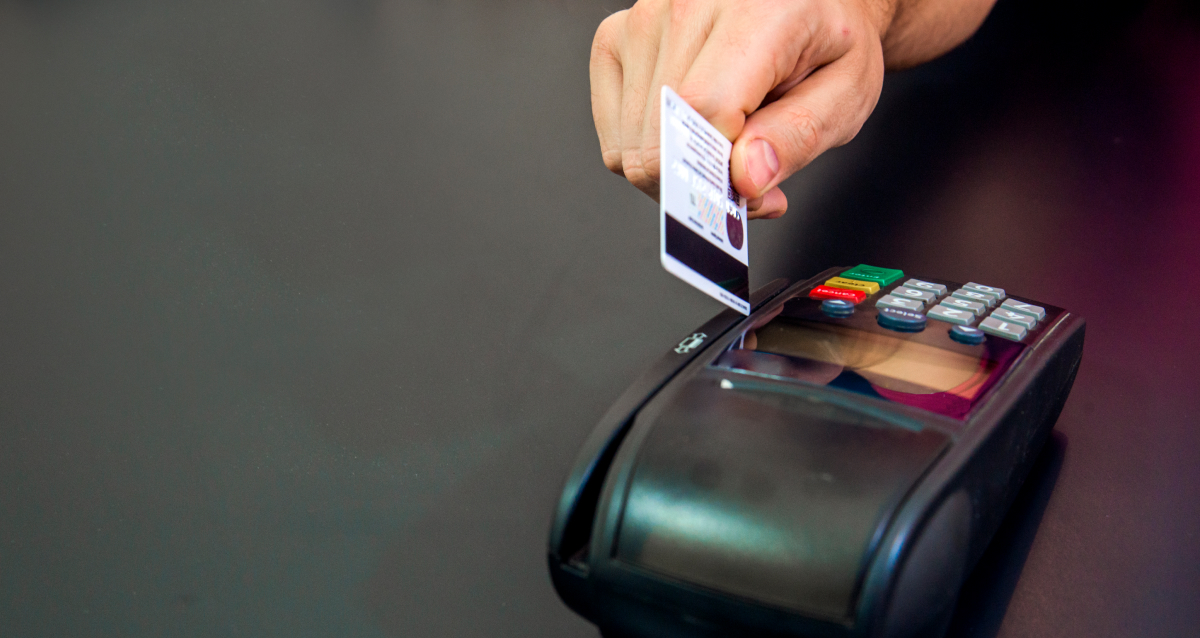
Hotel payments can be a significant challenge for travelers and business professionals alike. According to the Global Business Travel Association, the majority of business travelers have faced issues related to hotel payments. Unauthorized charges are a common concern. The finance industry also reveals that 60% of credit card disputes involve unauthorized credit card charges, making it a prevalent issue.
Understanding credit card authorization becomes crucial as travelers become increasingly wary of these practices. Whether it’s additional fees, security deposits, or unexpected charges after check-out, many travelers have been caught off guard by unauthorized charges.
This leads to financial stress and erodes trust between travelers and hotel establishments. In this blog, we will explore what credit card authorization entails, why it is essential for both parties and the rights of travelers regarding unauthorized charges.
Let us understand if hotels can charge your credit card without authorization.
What is Credit Card Authorization or CC auth?
Credit card authorization (CC auth) is when the hotel verifies a guest’s credit card information before completing a transaction. It involves obtaining approval from the credit card issuer to confirm that the card is valid and has sufficient funds or credit to cover the expected charges.
This authorization ensures that the hotel can secure payment for the services that may arise during the guest’s stay. For example, room charges, amenities, and any incidental expenses.
During the authorization process, the hotel may place a hold on a certain amount of funds on the guest’s credit card. This is not a charge but a temporary hold to guarantee the funds are available. The amount held can vary depending on the hotel’s policy, stay length, and booking type.
Once the guest checks out, the hotel will finalize the transaction by charging the amount incurred during the stay, and the hold will be released.
How to Avoid Unexpected Charges In CC Authorizations Sent to Hotels?
Let’s say you’ve done everything right- booked a fully prepaid stay and sent a clear credit card authorization stating it’s for incidentals only. You have even highlighted it in your email to the hotel. Everything is set, but your finance team calls: “Why is there a $5,000 hold on our corporate card?”
The front desk mistakenly authorized the card for the entire stay plus incidentals, tying up a huge portion of your company’s credit limit. This only leads to frustration when the hotels respond that they can’t do anything about it, and it will take 5-7 days to refund the amount.
Sounds familiar, right? These unexpected authorizations are more than an inconvenience- they create cash flow issues, operational delays, and frustrated travelers.
So, how can you avoid these unexpected charges?
1. Clearly Communicate Payment Instructions
When sending a credit card authorization (CCA) form, explicitly state that the card is for room, tax, or incidentals only. Add notes in the reservation and email confirmation to reinforce these instructions.
Hotels typically allow guests to use different payment methods for different charges, such as:
- Room and Tax: This covers the cost of the room and applicable taxes.
- Incidentals: Includes charges for food, minibar, parking, and other extra services.
If a company or travel manager intends to cover only room and tax but does not specify this clearly, the hotel might also accidentally charge the card for incidentals. This can lead to unexpected expenses for the company and disputes over reimbursement.
Example: A company books a hotel stay for an employee traveling for a business meeting. The corporate card is authorized only for room and tax. The best practice is clearly stating in the CCA form ‘This card is authorized for ROOM and TAX only. All additional charges must be paid by the guest at check-out.’ Another best practice is the reservation system has a note mentioning the card is exclusively for room and tax, and the personal card is for incidentals.
2. Use a Card with a Fixed Limit
Always issue a virtual or corporate card with a set spending limit. This prevents hotels from placing excessive holds beyond the authorized amount.
Setting spending limits is important for 3 reasons:
- Prevents Excessive Holds: Hotels may hold extra funds for incidentals, sometimes exceeding the total stay cost.
- Avoids Overdrafts & Declined Transactions: An unexpected hold could block other essential purchases if a virtual or corporate card has a limited credit line.
- Provides Better Expense Control: Businesses can cap spending to avoid misuse or unintended charges.
Example: A company books a hotel stay for an employee attending a client meeting. The hotel is booked for $1,500 (room & tax), but the hotel pre-authorizes $2,500 to cover potential incidentals. In such cases, the best way to deal with this is to issue a corporate card with a set spending limit of $1,500. You can also notify the hotel stating that the card has a limit of $1500 and is not authorized for incidentals.
3. Double-check with the Front Desk
A few days before check-in, call or email the hotel to confirm they have the correct billing instructions. Reiterate the CCA details to avoid confusion, as front desk staff changes can lead to miscommunication. To prevent billing errors, follow these steps to confirm:
- The hotel has received and correctly processed the CCA form.
- The card is authorized only for the specified charges (room, tax, or incidentals).
- The reservation notes reflect the correct billing instructions.
Example: A company books a hotel for an employee’s business trip and submits a CCA form authorizing payment for room and tax only. The employee is asked to provide a personal card for the entire stay, causing confusion and frustration. Another scenario can be an employee pays out of pocket and later, the company has to handle a reimbursement request.
To avoid such issues, you can call the hotel and ask “Can you confirm that our CCA form is attached to the reservation for [Guest Name]? The card should cover room and tax only, and the guest will provide a personal card for incidentals.”. You can also send a follow-up email to the hotel, ensuring there is written proof of the billing agreement.
4. Monitor Statements After Checkout
Review your card statements immediately after the stay to ensure no unauthorized charges were placed. If you spot discrepancies, address them immediately with the hotel and your finance team.
This is important because:
- Detects Unauthorized Charges Early
- Prevents Delayed Refunds
- Simplifies Dispute Resolution
- Avoids Accounting Issues
Example: A company books a hotel stay for an employee. The employee checks out on time, but the hotel mistakenly charges for an extra night. The company noticed the charge was too late, making the refund process difficult. Moreover, the hotel claims there is no incorrect charge from their side.
To avoid such issues, as soon you get the card statement ensure the finance team checks for unexpected charges. If the extra night charge appears, they can immediately contact the hotel with a copy of the checkout receipt. This way, the issue is resolved quickly and the refund is processed within days.
Calculate your savings now!
Offline Steps for CC Authorization for Hotels
When processing a CCA for hotel bookings offline, it’s important to follow structured steps to avoid miscommunication, billing errors, and unauthorized charges.
Step 1: Obtain the Hotel’s Credit Card Authorization Form
- Contact the hotel’s billing or reservations department.
- Request a physical Credit Card Authorization (CCA) form specific to their stay.
- Confirm which charges the card will cover (e.g., room & tax only, incidentals, or full stay).
Step 2: Complete the CCA Form Accurately
Fill in the form with the following details:
- Guest’s name
- Reservation number
- Check-in & Check-out dates
- Billing instructions (Room & tax only or all charges)
- Cardholder’s name (Company or individual)
- Credit card number and expiry date
- Authorized amount limit
Step 3: Submit the CCA Form to the Hotel
Fill in all the details and submit it to the hotel via post or in person. After submitting the form, ask the hotel to confirm receipt of the same with a mail or a written confirmation. Verify with the front desk or reservations team that the CCA is linked to the reservation.
However, offline methods for CC auth have its drawbacks. Sending CCA forms physically exposes sensitive card details, making them vulnerable to hackers or unauthorized access. Moreover, hotels often take a lot of a time to process CCA forms which leads to check in denials. With a physical form, there are high chance that the front desk of the hotel can misplace it which can cause issues with billing.
Hence it is important to switch to a hassle-free and seamless CC authorization process.
Why Don’t You Opt for a Hassle-free CC Authorization with itilite?
Managing credit card authorization forms can be a hassle and inefficient, frequently causing check-in denials and authorization issues. itilite corporate cards provide a smooth alternative to improve your business travel experience significantly.
With itilite one time virtual card, you can bid goodbye to the tedious credit card authorization process. itilite ensures that virtual card details are sent to hotels and double-checked before check-in, ensuring a seamless and hassle-free arrival.
Can Hotels Charge Your Credit Card Without Authorization?
Hotels cannot legally charge credit card without authorization. However, there are circumstances where this might occur and lead to disputes. When you book a room or check in, you often provide your credit card details as part of the process. This authorizes the hotel to charge for the agreed-upon services, such as the room rate, taxes, and incidentals.
However, unauthorized credit card charges can occur if the hotel adds fees you didn’t agree to. These could include extra services, damages, or post-check-out charges.These charges become problematic when they aren’t communicated, or the hotel fails to resolve disputes before billing your card.
Under the Fair Credit Billing Act (FCBA), you can dispute unauthorized charges with your credit card issuer. You still have these protections even if you are a credit card-authorized user without SSN. The law still safeguards your rights, ensuring you can contest any unauthorized charges.
Protect Yourself From Unauthorized Credit Card Charges
To conclude, hotels charge your credit card for legitimate expenses incurred while staying. But, they do not have the authority to make unauthorized charges. Understanding the difference between authorized and unauthorized transactions is crucial for protecting your finances.
One of the best ways to protect yourself from unauthorized credit card charges is to get assistance from itilite. itilite is a modern SaaS-based business travel management company that helps companies and employees travel seamlessly. If you’re struggling with credit card authorization and the charges involved, we will take complete care of the whole process.
From the time you announce your business trip until you return, we will handle the whole credit card authorization process with hotels. All you have to do is sit back and relax.
Are you curious to know more? Get in touch with us now!







